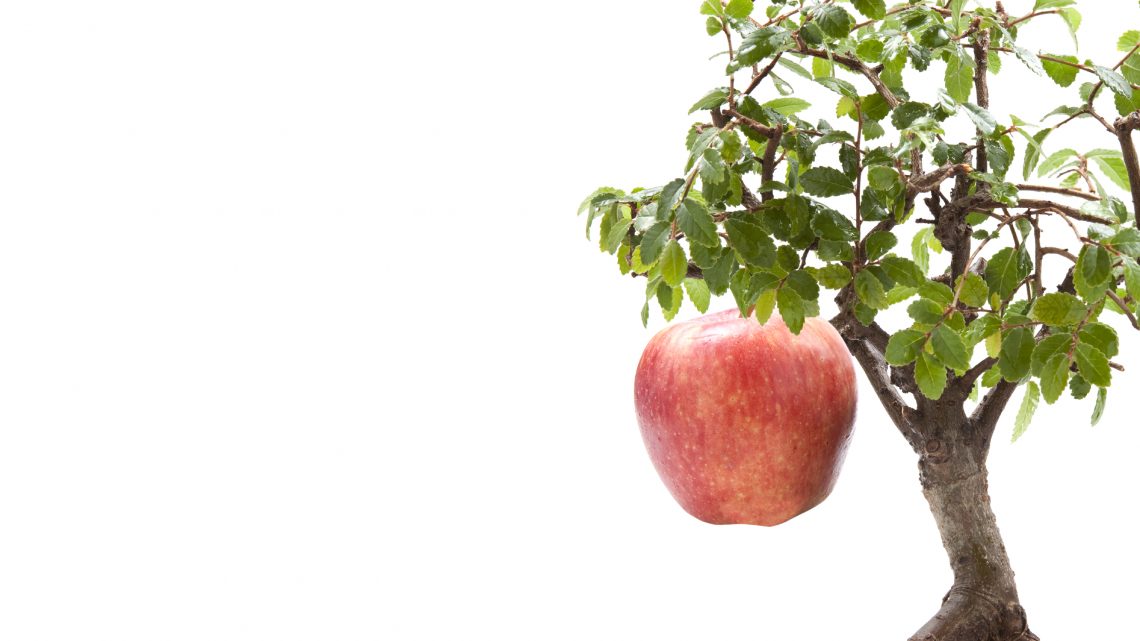For a long time it has puzzled…ok, maybe sometimes irritated…me that we were condemned corporately in Eden.
I wonder, why didn’t I get a chance at the tree? Why didn’t everyone get a chance at the tree? The ones who ate would be banished to one side of the world, which would conveniently be surrounded by water, enormous sharks and a no-fly zone, while the obedient ones (of whom I’m sure WE would all be a part) would stay in the Garden, living out our…I mean, their…lives in the perfection of spiritual relationship, mental and physical prowess, or until such time as they…I mean, we…succumbed to the temptation and were teleported to the other side.
It just doesn’t seem fair that such naïve representatives of the human race would be endowed with the weighty responsibility of making a decision for me all these millennia later. Especially when it doesn’t seem like they were briefed very well as to the long-term effects, only being told that THEY would die, not the millions of their spawn that would follow. And honestly, what reference point did they have for death anyway? Did they even understand what God was saying, “…for in the day that you eat of it you shall surely die.” (Gen. 2:17)?
Obviously, evil existed before Eve ate the fruit. We believe that Lucifer had fallen, then become or entered a snake in the Garden, and tempted Eve. Evil was already there, in the garden, in the cosmos. However, if Adam and Eve had no knowledge of good or evil, then they could not differentiate between the two. They just accepted whatever came without judgment.
We generally know things by comparison. When we compare or label things (as in judging), we usually conclude that they fall into one of two categories – good or bad. This process, with which we are so familiar, divides our world into black and white and is rooted in fear – fear of what I can’t control and a huge fear of being wrong.
Yet we do it automatically and constantly. In case you don’t believe this, try to take one day (or even a few hours) and notice all the things that excite or irritate/annoy you. Write them down and divide them into 2 columns – good and not-so-good. Then attempt to forget what you’ve learned and how you’ve thought for most of your life, and imagine that you didn’t have any knowledge of good and evil – pre-Tree. Imagine that you took everything as it came, without judgment, and sat with open hands and open heart.
John 9 contains the story of a man born blind who ‘happened’ to be on Jesus’ route one day. His disciples, in true post-Eden style, mentally positioned his condition, and his character, in the second column – ‘not-so-good’. Turning to Jesus, they invited Him to taste the fruit, “Rabbi, who sinned, this man or his parents, that he was born blind?” Jesus, refusing the bait, replied, “It was not that this man sinned, or his parents, but that the works of God might be displayed in him.” (vs. 2, 3). God’s glory – and His works – far outweighed the judgment that something ‘bad’ had happened to this man because of his own deficiency.
Jesus reminded them that it was His work to do God’s work, in this case, to open blind eyes. And none were perhaps more blind than those looking out from the faces of these who daily followed Him. In a scene reminiscent of creation day 6, Jesus uses dirt and His mouth to create the substrate from which wholeness would emerge. By pointing beyond and outside of ‘either/or’ thinking, Jesus was able to demonstrate a paradigm-shifting viewpoint – things are not always what they seem…or how we judge them.
By truly grasping the reality of Paul’s statement*: ”And he said unto me, My grace is sufficient for thee: for my strength is made perfect in weakness. Most gladly therefore will I rather glory in my infirmities, that the power of Christ may rest upon me,” we could suspend judgment on our failures, allowing God’s strength to be perfected in the midst of those very weaknesses.
In fact, Jesus admonished, “But you are to be perfect, even as your Father in heaven is perfect..”** Though we often think being perfect really means being God (after all, only God is perfect, right?), when you consider these two verses together, God’s strength is perfected (same root word) in our weakness. Is it possible that, in a strange twist of destiny, my weakness is actually the way I’m ‘perfected’? It is, after all, all about Him, not me!
So…maybe I do in fact have my chance at the Tree! Maybe we all stand at that tree every day with the choice to eat the fruit of judgment and comparison – the 2 columns (good and not-so-good) – or to walk back to a face-to-face relationship with God, eating freely from the Tree of Life.
Choose very very carefully…
Sincerely,
Ann Halim, editor
Republished with permission from College View Church’s eWeekend newsletter
*2 Corinthians 12:9 (KJV)
**Matt. 5:48 (NLT).









